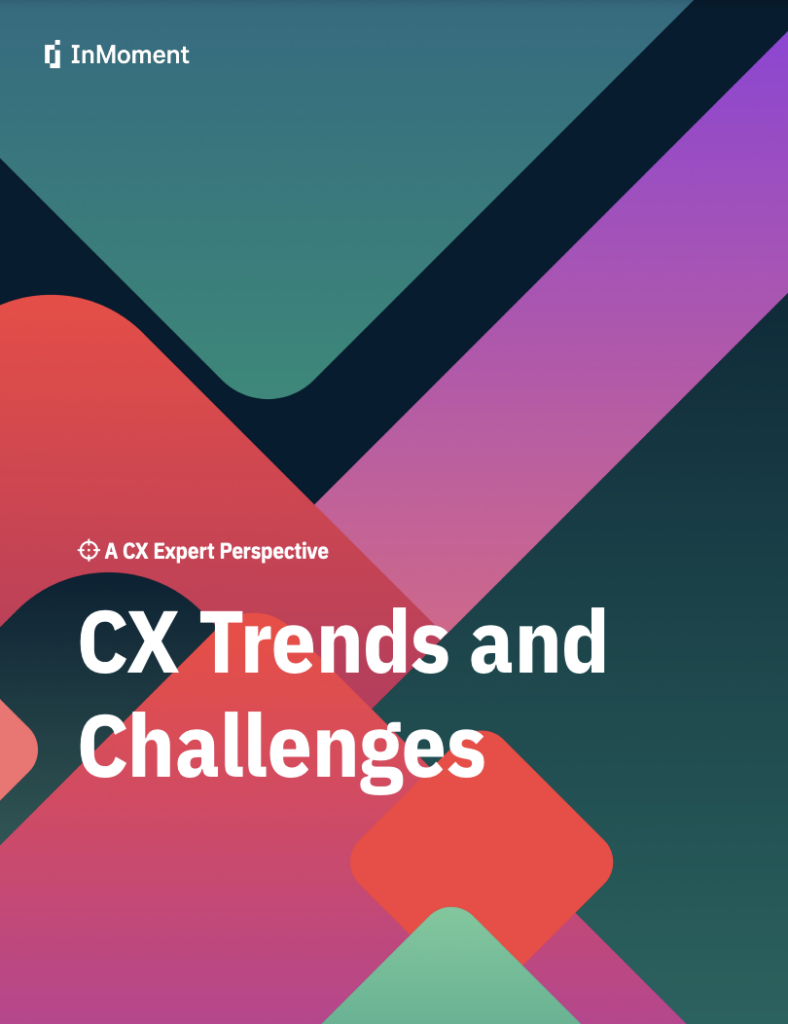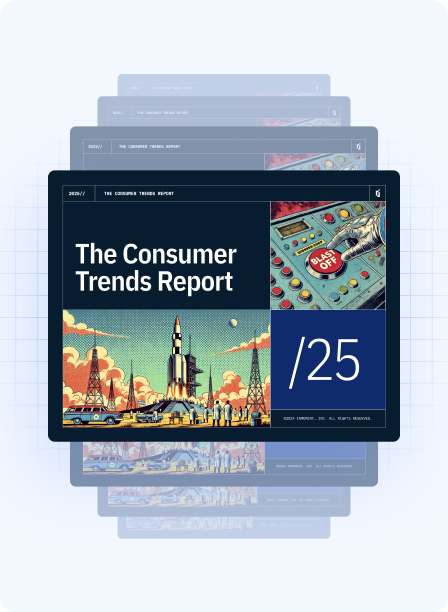Customer Feedback Questionnaire: Capturing Actionable Insights from Customers
Businesses can collect insightful feedback with the help of questionnaires to improve their products, services, and customer support. But, in order to capture actionable data from customers, it’s worth thinking about the right questions to ask them.
Understanding customer expectations and behaviors is crucial to delivering consistent value and accomplishing key business metrics. In fact, 66% of customers expect companies to understand their needs. With the help of the tried-and-tested customer feedback questionnaire, businesses can take the first step toward boosting satisfaction, retention, and brand reputation.
What is a Customer Feedback Questionnaire?
A customer feedback questionnaire is a set of structured questions that aims to collect information from customers about their experience, opinions, and thoughts about your product or service. These questionnaires can take several different forms, but the main goal is to understand customer feelings toward your business. For instance, a customer satisfaction survey presents a list of specific questions to customers to gauge their satisfaction levels with your brand.
Why is Asking the Right Customer Feedback Questions Important?
A customer feedback questionnaire is only as good as the questions it presents to customers. Low-effort and vague questions will either yield basic responses or be ignored by potential respondents altogether. Here is why asking the right feedback questions is crucial for your business:
- They provide relevant and targeted insights. Good questions attempt to collect feedback on specific aspects of the experience of a certain customer profile. The targeted nature of these questions makes it easier for respondents to explain their pain points and how their experience can be improved.
- They improve survey response rates. Clear and specific questions are easier for customers to understand and answer, which helps reduce fatigue and improve response rates.
- They help collect actionable feedback to guide customer experience strategy. High-quality questions with a clear purpose behind them can capture actionable insights from customers. Survey respondents like to provide suggestions on improving their experience, especially when they feel the questions are relevant to them.
Knowing the right questions to ask can positively impact your customer relationships, but designing good questionnaires is certainly a challenge.

With the help of InMoment’s AI-Powered Active Listening™, you can leverage the power of award-winning generative AI to intelligently listen and respond to customers in real-time. By learning and adapting to customer feedback, the AI agent can ask better questions. This helps gather useful insights without tiring respondents.
Types of Questions in a Customer Feedback Questionnaire
The most effective customer feedback questionnaires feature several different types of questions to help you gather comprehensive and actionable insights. From easy-to-answer ranking questions to open-ended queries, each question type has its unique strengths that can add value to the feedback you collect.
1. Multiple-choice questions
Multiple-choice customer survey questions present respondents with a question and a set of predefined answer options from which to select. This format is ideal for quickly gathering standardized data, which allows for easy analysis and comparison. These questions also help identify trends in customer behavior and easily compare satisfaction levels across various customer segments or time periods.
2. Open-text questions
Open-ended customer survey questions allow respondents to answer in their own words, which is a great way to collect valuable qualitative insights. These questions are particularly helpful when you want more detailed feedback or when customers need to elaborate on their experiences. They also provide crucial context and reasoning behind your customers’ quantitative scores.
While open-text questions provide rich data, analyzing them can be time-consuming. InMoment’s award-winning custom text analytics platform can help quickly categorize and summarize open-text responses.
3. Likert Scale Questions
Likert scale questions ask respondents to rate their level of agreement or satisfaction, typically on a 5-point or 7-point scale. This question type is excellent for measuring attitudes or perceptions about specific products or services. For instance, you can easily track changes in customer attitudes toward your website design by looking at how much more or less they agree with its user-friendliness over time.
4. Ranking/Order Questions
Ranking questions ask respondents to rank items in order of preference or importance. This question type helps to identify which factors matter most to your customers. Therefore, this is the ideal question to use if you want a quick sense check on whether you’re prioritizing the right product features or services. It will also help inform strategy on which improvements to make based on potential impact on customer experience.
5. Drop-Down Questions
Drop-down questions are similar to multiple-choice questions but provide a list of answers in a drop-down menu format. This format can help keep questionnaires concise and prevent survey fatigue for respondents. If you have a clear list of predefined response options for certain queries and want to capture specific information, drop-down questions can add variety and value to your surveys.

Effortless Surveys with Pre-Built Questionnaires
Creating a customer feedback survey can be overwhelming with so many options available. Finding the best way to present a questionnaire that’s both user-friendly and efficient can also be time-consuming. That’s why InMoment offers pre-built surveys tailored to your industry, helping you save time and collect customer feedback immediately.
Customer Feedback Questionnaire Examples
In this section, we will look at examples of good questions to include in your customer feedback questionnaire to capture relevant and useful information. From getting to know the customer better to industry-specific queries, these examples provide inspiration for consistently collecting high-quality feedback.
Questions to know your customers better
The best way to start collecting meaningful customer feedback is to understand the exact user persona you are targeting with your product or service. You can start doing so with the help of the following questions:
1. What is your primary goal when using our product or service?
This question helps you understand the customer’s expectations. What compelled them to turn to your product or service? What are they hoping to accomplish by interacting with your business? The responses can help you better align your offerings with customer needs.
2. How frequently do you use our product/service?
Knowing how often customers engage with your product helps identify potentially loyal customers or those who may need more support to get the most out of your business.
3. Are you satisfied with the pricing of our product/service?
The responses to this question will help you understand if you’re targeting the right customers with your pricing model. It will also highlight any gaps between your business goals and customer expectations.
4. What concerns, if any, do you have about our product/service?
This question addresses potential areas of concern related to your brand that might make your customers uncomfortable. Understanding these concerns and resolving them immediately goes a long way toward converting prospects and improving customer relationships.
5. How would you describe your overall experience with our product/service?
This question attempts to capture general thoughts from existing customers on how well your product/service is helping them achieve their goals. It can be presented as part of a Likert scale survey (rate your experience on a scale of 0-10) or in the form of an open-text question.
Questions to evaluate overall customer satisfaction
The following questions can help you determine the CSAT score for your business by evaluating overall customer satisfaction:
6. How would you rate your overall experience with our business?
Ask customers to rate their experience across their journey with your business so far.
7. Is there anything additional you’d like to share regarding your interaction with our business/product/service/?
This open-text question allows for further context and detail regarding the customer’s experience with your product/service.
8. What is one improvement we could make to enhance your experience with our company/product?
By narrowing down your question to a single improvement, you are likely to elicit high-priority feature requests from respondents.
9. What recommendations would you provide to help us improve our product/service?
Encouraging suggestions from your customers will help you pinpoint areas for improvement and opportunities to stand out in the market.
10. On a scale of 1 to 10, how would you rate your satisfaction with our product/service?
A numerical rating will help you quantify customer satisfaction and identify patterns in satisfaction levels.
11. How likely are you to recommend our product/service to a friend or family member?
This question, often presented in a Net Promoter Score (NPS) survey, helps measure customer loyalty. With 77% of customers willing to recommend a brand based on positive customer experience, the responses here will also give you some insight into how well you’re delivering on your CX goals!
12. Do you have any additional feedback or suggestions to help us enhance our product/service?
You can use this question as a final request for insights and suggestions from customers before completing the survey.
Questions for improving marketing strategy
Understanding how customers discovered your business and why they chose your product over competitors can help you with marketing and brand reputation management. Here are a few questions for inspiration:
13. How did you hear about our company?
Customers discover your business through various channels, from their colleagues to social media posts. Collecting this information provides insights into which marketing channels or referral methods can be the most effective for you.
14. Have you used a similar product/service in the past?
If prospects or existing customers have previously interacted with your competitors, you gain useful context into how you can make yourself stand out.
15. What made you choose our product/service over other options?
This is where you gain insight into any competitive edge you may have in the market. If a customer has used a product like yours in the past and is now interacting with you, there is a good chance that your business is addressing an unfulfilled need for them.
16. Did any reviews, testimonials, or influencer endorsements impact your decision to try our product/service?
This question attempts to gain insight into your public image and how much of a role it plays in boosting customer acquisition and revenue.
Industry-specific customer feedback questions
While there are some excellent general satisfaction questions you can ask, customers appreciate it when you collect feedback relevant to the exact industry. It shows that you aren’t asking questions for the sake of it and are invested in improving the customer experience.
Customer Feedback Questionnaire for Banks and Financial Services
- How would you rate your satisfaction with the process of applying for our banking services?
- How satisfied are you with the clarity and openness of our financial products and/or services?
- Did our services align with your financial objectives and expectations?
Healthcare Questionnaire
- How satisfied were you with the quality of care provided by our doctors and nurses?
- How would you rate the cleanliness and hygiene standards of our facility?
- Does the ease and process of booking an appointment meet your expectations?
- How would you rate the communication you received from our hospital staff?
Customer Feedback Questionnaire for Restaurants
- On a scale of 0-5, how would you rate your recent dining experience at our restaurant?
- Was the ambiance in our restaurant in line with your expectations?
- How would you evaluate the quality of the food and drinks during your visit?
- Were you satisfied with the level of service provided by our waiting staff?
- Were there any specific dishes or menu items that made an impression on you?
E-commerce Questionnaire
- Were you satisfied with how easy it was to navigate our website and find the items you were looking for?
- How would you rate your satisfaction with the payment and checkout experience?
- Did the delivery and packaging of your purchase align with your expectations?
- How would you rate your satisfaction with the speed and dependability of our shipping service?
Real Estate Questionnaire
- How satisfied were you with the process of finding and viewing properties through our service?
- How would you rate the professionalism and communication of our real estate agents?
- Were you happy with the clarity and transparency of the contract terms?
- How satisfied are you with the overall experience of purchasing or renting a property through us?
- How likely are you to recommend our real estate services to friends or colleagues?
Software Questions
- How would you rate your overall satisfaction with the ease of using our software?
- How satisfied are you with the level of technical support provided by our team?
- How would you rate the product’s performance in terms of speed and reliability?
- Did our software meet your business needs and expectations?
- How likely are you to recommend our software/platform to others in your industry?
Education Questions
- How satisfied are you with the quality of the instruction and the course materials provided?
- How would you evaluate the accessibility and availability of the resources offered?
- On a scale of 1-10, how would you rate the level of support provided to you throughout this course?
- Would you recommend this course to others interested in the subject?
Automotive Questions
- How satisfied were you with the leasing process at our dealership?
- How would you rate the quality of service during your recent vehicle maintenance?
- Were you satisfied with the knowledge and assistance provided by our sales staff?
- How would you rate the value for money of the vehicle you purchased or leased?
- How likely are you to recommend our dealership to others?
Customer Feedback Questionnaire for Hotels
- How would you rate your overall satisfaction with your recent stay at our hotel?
- How satisfied were you with the upkeep and cleanliness of your room?
- Did the amenities offered meet your expectations?
- How would you rate your experience with the check-in and check-out process?
- On a scale of 1-5, how likely are you to recommend our hotel to others?
Questions to assess customer support performance
From improving the contact center experience to understanding customer expectations on a deeper level, the following questions help you analyze your customer support efforts:
1. How would you rate the communication you received from our customer support team?
Responses to this question provide insight into the clarity, tone, and professionalism of your support teams.
2. How satisfied were you with the timeliness of our customer service response?
This question helps you evaluate response times and if they require significant improvement.
3. How helpful did you find our customer service representatives to be?
Collect feedback on the value provided by customer support, including the knowledge and responsiveness of the representatives.
4. How would you rate your overall experience with our customer support team?
A general question to capture the customer’s satisfaction with the entire interaction.
5. Was your issue resolved to your satisfaction?
45% of customers want their issues resolved in the first interaction. Therefore, a question like this highlights your customer support team’s ability to address problems effectively so that you can make adjustments if necessary.
Questions to test a new feature
The following questions help you make customer-centric decisions on releasing a new feature for your product or service:
1. If we released this new feature, would you be willing to test it?
This question helps you get a general idea of customer interest in product updates and new features.
2. Does this new feature solve a specific problem for you?
This is an opportunity to test the waters and see how well your feature will be received by customers once it is released.
3. Would you recommend our product based on this new feature to others?
This question will help determine if your new feature is adding enough value to your product to make it appealing to prospects.
4. What improvements would you suggest for this new feature?
Collecting feedback for improvements ensures you maintain a customer-centric approach to product development.
5. On a scale of 0-10, how relevant is this feature to your experience with our product?
Ask customers to rate the relevancy of this potential update to their interaction with your product.
Customer Feedback Questionnaire Best Practices
- Design your questionnaires with purpose. Ask yourself why sending out a survey to customers at this point in time is so important to you. By clearly identifying your goals and desired outcomes, you can ask more targeted questions that are likely to provide the precise insights you’re looking for.
- Keep the questionnaire short and focused. Avoid long or overly complex questionnaires. A hallmark of good survey design is a set of short and specific questions focusing on key areas of concern or improvement. A survey that takes no more than five minutes to complete also reduces the risk of respondent fatigue.
- Send questionnaires at the right time for maximum impact. Timing is crucial for maximizing response rates and addressing concerns before it’s too late. Send surveys after key touchpoints, like a product purchase, customer support interaction, or cancellation of a service, to collect feedback while the experience is still fresh for the customer.
- Utilize various types of questions. A detailed response to an open-text question will provide different insight than a multiple-choice question response. By leveraging various types of questions in your survey, you can collect both quantitative and qualitative feedback that gives you a better overview of customer behavior.
- Ensure consistency with rating scales. If a customer responds to a rating scale question featuring the least to most satisfied order, they will expect the same order throughout the survey. Mixing up the order will only create confusion and yield inaccurate insights.
- Select the right channels for sending surveys. A guaranteed way to improve response rates is to choose the right distribution method according to customer activity. For instance, if your customers are mainly active on social media, sending survey requests via email would be a waste of your time. Customizing your distribution method to your customers’ online habits will help boost engagement and response rates.
- Test your questionnaire before sending it out. Don’t treat your survey as a hopeful shot in the dark. Test it with your staff members or a small group of participants to ensure it checks all the boxes for a good questionnaire that will engage your customers without making them feel intimidated.
- Check-in with respondents. If your questionnaire collects information like email addresses, use that information to contact respondents and follow up with them. Express your gratitude for their feedback and assure them that their concerns will be resolved at the earliest.
Customer Feedback Questionnaire Sucess Stories
Utilizing customer feedback questionnaires as part of your CX strategy can have a positive impact on customer satisfaction and retention. The following examples demonstrate how businesses have leveraged surveys to transform their customer relationships:
Juniper
Juniper Networks, a global leader in network management software, was struggling to effectively collect feedback from its 30,000+ enterprise clients. The underlying cause was a lengthy feedback system that was neither mobile-friendly nor good at asking targeted questions.
However, through its partnership with InMoment, Juniper managed to reduce its survey length by 70% and optimize its questionnaires for mobile use. As a result, it witnessed a 10x boost in survey responses, which in turn enabled it to collect actionable insights, resulting in 62% faster issue resolution for customers.
Metro Bank
Metro Bank was able to stand out from its competition by making the most of its customer feedback questionnaires. By leveraging InMoment’s Active Listening™ tool and strategically relocating surveys within its app, the British bank improved its survey response rate and the quality of feedback it was collecting.
The impact on Metro Bank’s business metrics shows that the approach paid off, with a 5% increase in revenue and a growth in the number of customer accounts to three million.
St. Luke’s Medical Center
St. Luke’s, a private healthcare facility based in the Philippines, revolutionized its patient feedback management by understanding the importance of good survey design. One of the biggest challenges it faced was a delay in receiving feedback, which made it difficult to address patient concerns in a timely manner.
After teaming up with InMoment, St. Luke’s was able to connect customer feedback questionnaires to their CX platform for prompt issue resolution. Every time they receive a complaint, an email alert triggers a response from dedicated staff who address patient concerns right away.
This enhanced approach helped St. Luke’s collect 40,000+ responses and boost its patient satisfaction score to 8.4/10.
“If I could go back in time and do one thing differently at the beginning of our patient experience program, it would be partnering with InMoment sooner.”
– Dr Narciso Jr. S. Navarro
Customer Feedback Questionnaire Software
The right survey software for customer experience will make it easier for you to build, send, and track customer feedback questionnaires. With the help of such a platform, you can:
- Easily create custom surveys by using templates and customization options that fit your specific business needs. For instance, you should be able to customize surveys in multiple languages to cater to a global audience or choose from various types of questions for comprehensive feedback collection.
- Distribute surveys across various channels to reach customers where they spend the most time and enhance your response rates. The ideal software should allow customers to access your surveys through different mediums, including in-app, email, SMS, and links/QR codes.
- Track and analyze responses in real-time to ensure you never miss a trend or opportunity for improvement. Instant analytics that helps you track metrics like NPS or response counts and provide an overview of customer sentiment helps you tweak your CX strategy accordingly.
Automate the creation of feedback loops to immediately address customer concerns and enhance satisfaction levels. Automated responses to feedback, like a follow-up question or a note of gratitude, help create feedback loops that make it easier to engage customers and make them feel valued.

Get Actionable Insights from Customer Feedback with InMoment
A customer feedback questionnaire featuring relevant and targeted questions is crucial to collecting insightful feedback. InMoment’s XI platform can help you make the most of your surveys, questionnaires, and feedback forms to enhance customer relationships and your brand reputation. Schedule a demo today and see how our state-of-the-art tools, including Active Listening™, can help you elevate your feedback collection efforts!
References
Zippia. 25 Must-Know Customer Experience Statistics [2023]: The Benefits Of A Positive Customer Experience (https://www.zippia.com/advice/customer-experience-statistics). Accessed 10/10/2024.
Deloitte. Customer Service Excellence 2023 (https://www2.deloitte.com/content/dam/Deloitte/fr/Documents/consulting/deloitte_customer-excellence-report-2023.pdf). Accessed 10/10/2024.






